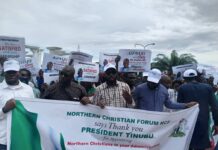The task of preserving what is left of Nigeria’s past historical information is a collective one. Even with all the existing written historical literature on Nigeria, a lot more remain to be covered, especially the local histories.
The nature of historical information is a very fragile one. Fragile because the moment the custodian of any of such pieces of information passes on without relaying same to another person, that information is lost. Given that Nigeria was largely a pre-literate society before the coming of the Europeans, academic historians, from about the 1950s onward, had relied on oral data to reconstruct the history of Nigeria. This became necessary because of the need to tell African stories from the Afro-centric and Afro-truthful perspectives. A lot of Eurocentric views about Africa and Nigeria, which had earlier flourished, needed to be corrected. Oral information had been very useful in achieving this objective.
The place of the parents is central in all of this. Since the family is the smallest unit of any society, it remains the first institution by means of which the child is socialised into his or her social environment. In traditional Nigerian societies, it was customary for the parents to relate their families’, lineages’ or communal histories to their children by word of mouth. People naturally took pride in doing this and it really helped in establishing unbroken cultural links across generations. However, this practice had continued to suffer serious setbacks in recent times.
The main factor that led to such setbacks had to do with the increasing rates of foster parenting because of white collar jobs. Parents hardly have sufficient time to spare to tell their children their histories. The roles of the mothers (the first teachers of the children) had almost been taken over by such people as the nannies and the kindergarten school teachers. By the time many of the parents are back home in the evening, they are either too exhausted from the stress of the day’s labour or were too busy preparing for the day ahead. The direct impact of the above scenario was that the children set out in life learning so many other things except their respective historical knowledge and socio-cultural identities.
It was for the above reason that undergraduate history students across Nigerian universities are often sent back to their respective places of origin to conduct oral interviews and collect oral data for their long essay works. The idea behind this practice was to help retrieve what was left of the local histories in many Nigerian communities before the demise of their respective custodians.
Information obtained through this exercises are valuable for the reconstruction of Nigerian history. It needs be clarified at this juncture that it does not require a university degree in history to document historical information. All it requires to do so is the ability to read and write. Whoever can read and write can document what he knows or interview elders in his area and carefully and truthfully record the accounts.
Historians, broadly described, are of two categories. There are the university-trained academic historians and there are amateur historians.
Amateur historians are those literate people that took natural interests in investigating about the past and committing same to writing without being formally trained to do so. It must be confessed that the writings of amateur historians had been quite informative for reconstructing the past. Professional historians needed only to engage the documents, sift and add professional touches to them and they are safe for use.Because of the rate of literacy in modern Nigeria, the parents can even go a step further. Those parents that are literate can write their own family or communal histories and make same available to their children who will find them useful in the future. For the parents with challenges in writing, the oral version will be as good.
They should get their children to write down the accounts as narrated and keep same for later use. The beauty of historical records consists in their capacity for usefulness after thirty, forty or even a hundred years when their original writers had long passed on. What is most important was the creation of the records and keeping them in retrievable formats such as could later be of use.
In conclusion, this article had raised concern about the observed reduction in the practice of parents telling their children their histories in the oral or written form. The article considered this as a negative trend that was not in the best interest of Nigeria in its search for self-awareness. It recommended a revisit to and revival of the practice of telling children their histories to enhance their senses of self-awareness and self-identity.
R.F. Obinta, PhD
Department of History,
Obafemi Awolowo University, Ile-Ife, Nigeria.











